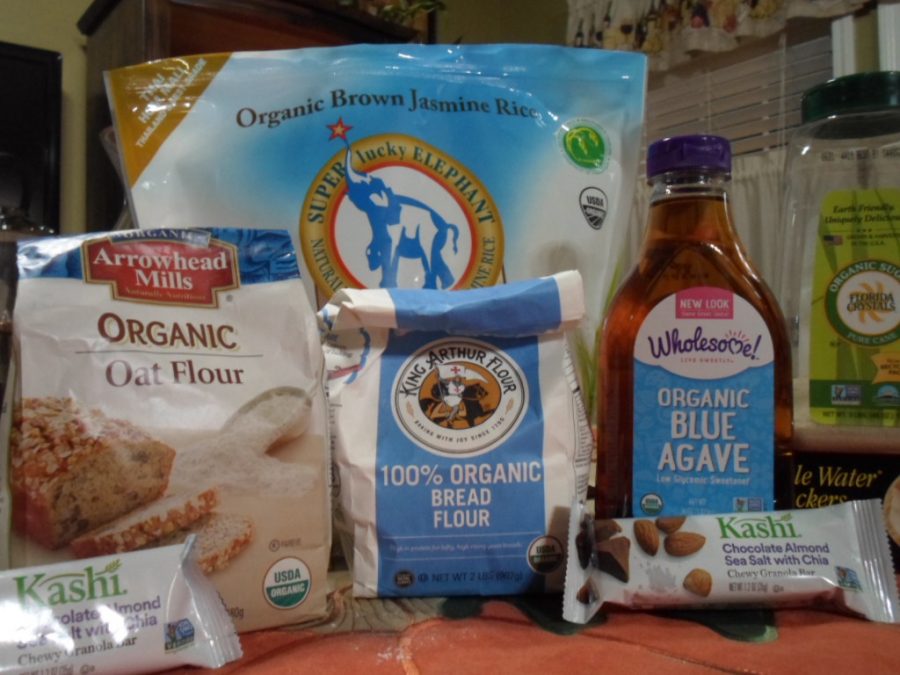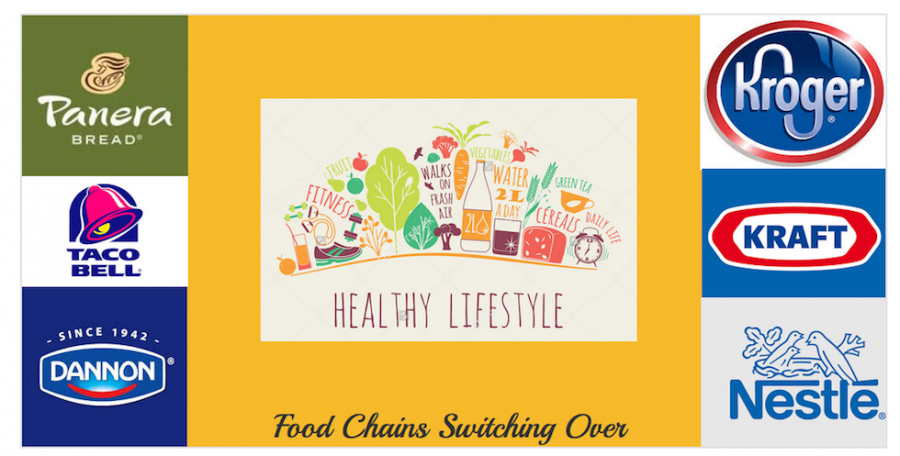GMO’s? Or GM-No’s?
Food companies now urge Americans to change their way of eating.
December 2, 2016
The rise in organic and non-genetically-modified (non-GMO) cuisine hit its highest point in 2016 — a 10.8% increase from last year — with grocery stores and eateries changing from processed food to healthier food sources.
According to the National Institute of Diabetes and Digestive and Kidney Diseases, one in three adults in the United States measure over the normal Body Mass Index (BMI) for their age group. With more than 78 million adults surpassing over 30 on the BMI, the numbers leave America in twelfth place for obesity around the world.
“I am slightly disturbed and disappointed that so many Americans are obese. I believe that the choices we make are heavily influenced by what we are offered, specially in terms of food cost” senior Courtney Wadley said.
The facts shocked America into re-evaluating their food choices and spurred controversy on whether food retailers sold “always fresh” products.
“I think it’s great that more people are realizing the benefits of non-GMO and organic foods. Yes, they are more expensive, but in the long run they are totally worth it,” senior Ansley Hayman said.
Major food retailers, like Kroger and Panera, sparked the change in other companies to eradicate preservatives and additives from their products.
“We’re really trying to accomplish two things: one, let our customers know that if their dealing with Panera, it’s comprehensive, it’s all inclusive and you can count on it. And I think we’re also trying to challenge the world a little bit,” Panera CEO Ron Shaich said.

Publix, along with many other grocery stores now offer a section for gluten free and non-GMO products. American pantries now showcase healthier options.
Del Monte, manufacturer and marketer for processed foods, jumped on the healthy bandwagon and switched 70 of their products to non-GMO this year. Other companies will follow, including Nestle and Dannon. The drastic changes leave many speculating and questioning on the reasons behind the modifications.
“These are extremely smart companies. They’re looking at their bottom line numbers and responding to consumer trends toward non-GMO,” Sandy Kepler, the CEO of non-GMO Global Inc, told The Organic and non-GMO Report.
The reason why so many companies decided to modify their ingredients focuses mainly on the consumer. Consumers adjust the way companies market their products, and with a number of people eating healthier through the last few years, companies now market to the growing percentage.
“We understand that increasing numbers of consumers are seeking authentic, genuine food experiences, and we know that they are skeptical of the ability of large food companies to deliver them,” Denise Morrison, CEO of Campbell Soup, said.
Each year an increasing amount of food retailers switch over to healthier food practices. Increasing knowledge and opening the minds of many to healthier alternatives.
“Organic and non-GMO food can help the community by bringing forth overall healthier choices to the American public” Wadley said.
By next year, several other food retailers will hit the shelves with organic and non-GMO labeling, moving America toward a healthier future.

The new year brought about change in food industries. Food companies continue to switch to organic and non-GMO ingredients.








Kimo • Dec 13, 2016 at 8:46 AM
Is there actually any reasoning behind why you think GMOs are so bad? Because there’s no evidence in this article (or in any clinical studies for that matter) that GMOs are unhealthy. This seems like fearmongering.